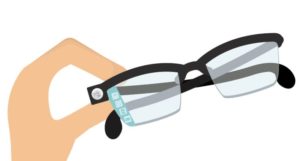Vuzix is highlighting the potentially transformative impact that its M400 Smart Glasses could have on the medical industry. The company called particular attention to its partnership with Ohana One, a nonprofit organization that provides surgical training for doctors in developing nations.

Ohana One was established to fight the brain drain that occurs in the medical industry. Surgeons in developing countries will often leave for more lucrative opportunities in other parts of the world, which creates a shortage of qualified medical professionals at home. That hurts patients who cannot get in to see a doctor, and hinders medical development because older doctors are not around to pass on their knowledge to the next generation.
Ohana One connects young surgeons with more experienced mentors from other countries in an effort to bridge the gap. However, the organization was forced to change its approach during the pandemic. Before COVID-19, doctors would travel to work with their mentees in person. Doing so was expensive, and was not feasible once travel lockdowns were put in place.
The M400 Smart Glasses gave the organization a way to solve both problems. The Glasses have video streaming capabilities, so a trainee that wears the Glasses during an operation will be able to show their mentor exactly what they are seeing during the procedure. The mentor can then use their voice to provide advice and feedback in real time, leading to better educational outcomes for the trainee and better medical outcomes for the patient.
The footage can be sent anywhere in the world, and only requires one set of Smart Glasses, since the mentor can view the video feed on a computer or some other connected device. The mentor can also take pictures and store them remotely, creating references and case studies that can be used for follow-up training after the procedure.
The Vuzix M400 Glasses offer temperature detection capabilities thanks to a partnership with Librestream that was formed in the early days of COVID-19. The wearable can also verify people’s identities with facial recognition.

Follow Us